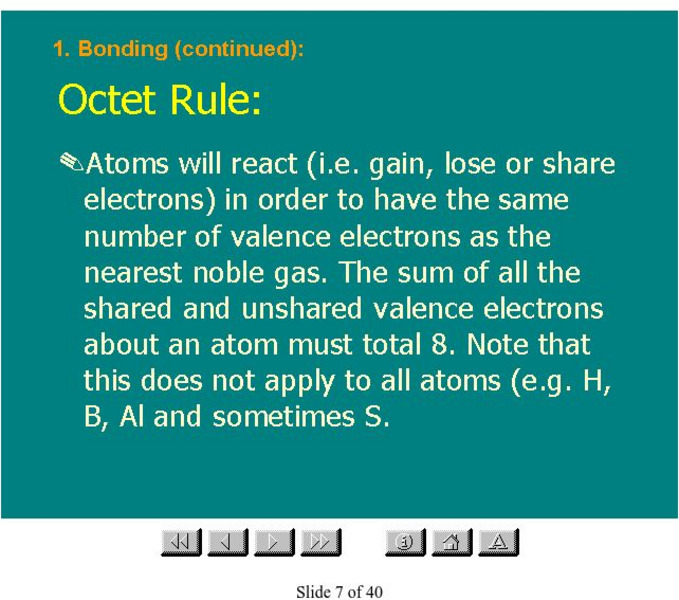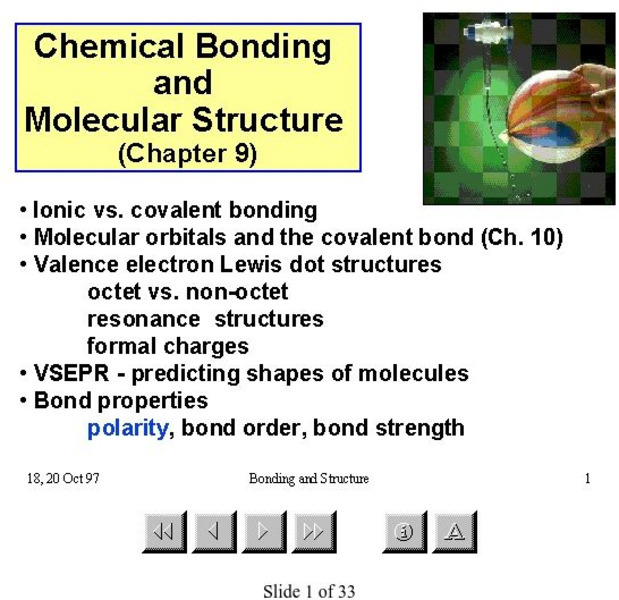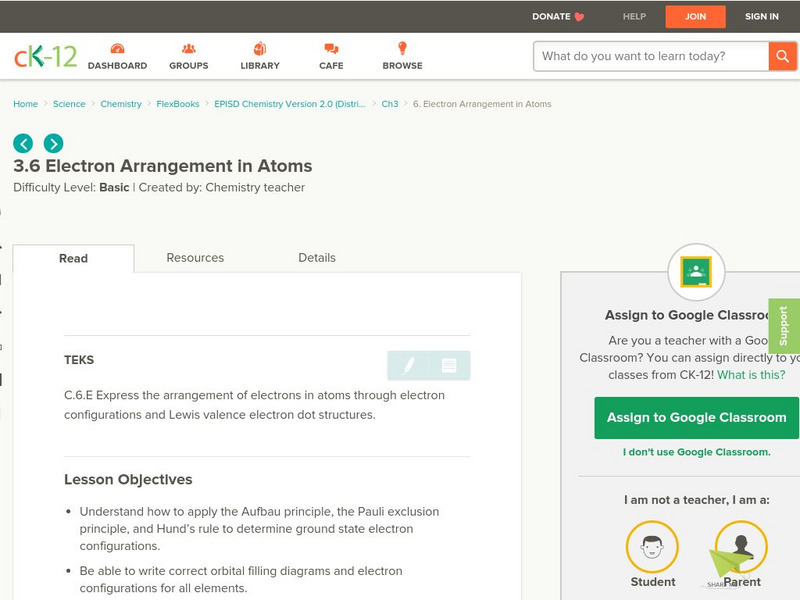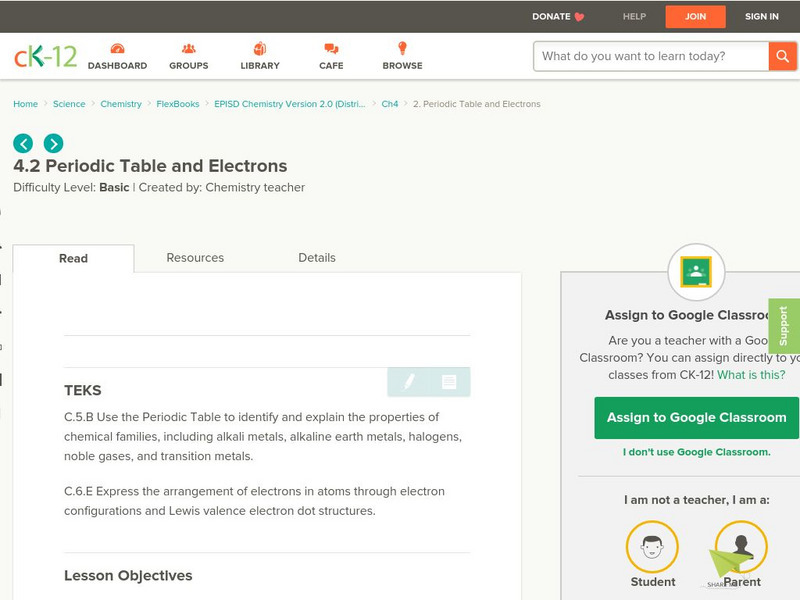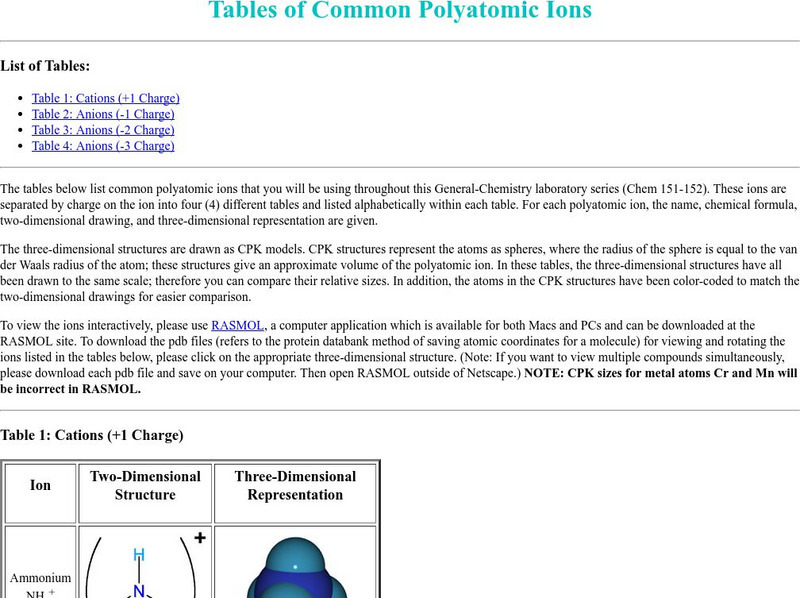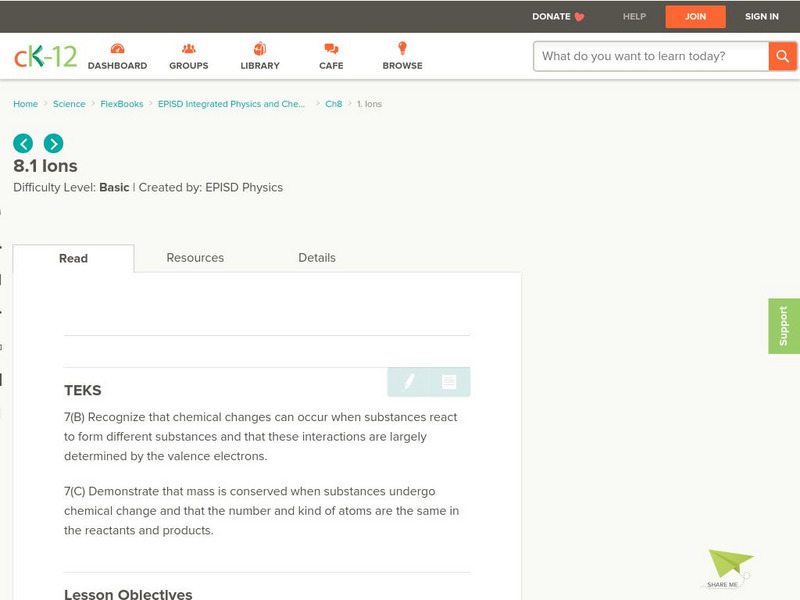Hi, what do you want to do?
University of Florida
University of Florida: General Chemistry I: Chemical Bonding
Notes on covalent bonding, bond length, bond energies, Lewis dot structures, and percent ionic character. Colorful graphics.
Other
Organic Chemistry: Octet Rule
This slide presentation contains a description of the octet rule, as well as many related topics.
McMaster University
Mc Master University: Molecular Structure
This PowerPoint presentation features 33 slides that explain chemical bonding and molecular shape.
Towson University
Towson University: Shapes of Molecules
This chemistry class printout details the main points of molecular geometry and explains bond hybridization and bond angles.
CK-12 Foundation
Ck 12: The Quantum Mechanical Model
[Free Registration/Login may be required to access all resource tools.] In the following online tutorial students will calculate the wavelength, frequency, and energy of light using Planck's constant and the speed of light. They will...
CK-12 Foundation
Ck 12: Electron Arrangement in Atoms
[Free Registration/Login may be required to access all resource tools.] In the following online tutorail students will learn how to express the arrangement of electrons in atoms through electron configurations and Lewis valence electron...
CK-12 Foundation
Ck 12: Molecular Geometry
[Free Registration/Login may be required to access all resource tools.] In this interactive learning module, students will learn a technique to predict molecular geometry based on a molecule's Lewis electron dot structure.
CK-12 Foundation
Ck 12: Electron Configuration and the Periodic Table
[Free Registration/Login may be required to access all resource tools.] In the following online tutorial students will sse the Periodic Table to identify and explain the properties of chemical families, including alkali metals, alkaline...
Other
Washington University: Polyatomic Ions
This page from the Department of Chemistry at Washington University provides attractive Lewis dot diagrams and three-dimensional models for many of the common polyatomic ions. The images will make your visit worthwhile.
Other
Chemistry 112: Properties of Acetic Acid
Here is a Lewis dot structure diagram of acetic avid, as well as a few properties of this compound.
CK-12 Foundation
Ck 12: Ions
[Free Registration/Login may be required to access all resource tools.] In this lesson, students learn ways to predict what type of ion a given element is likely to form.






